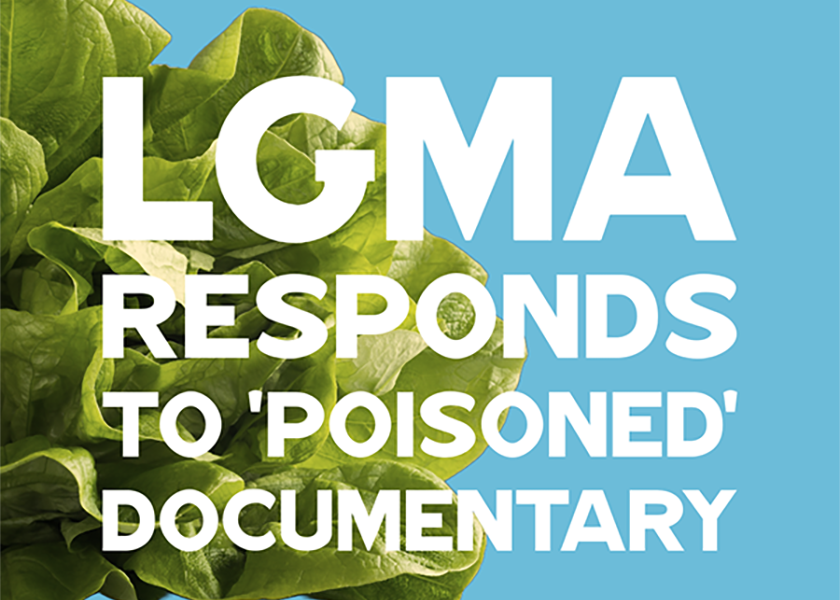The real truth about your food

By now you may have heard some buzz about “Poisoned: The Dirty Truth About Your Food,” a new documentary on Netflix. Two years ago, I was interviewed by the film’s producers for a grueling three-plus hours.
I took them to a farm to see a leafy green harvest and supplied them with detailed information on food safety practices required by the Leafy Greens Marketing Agreement (LGMA) and the research to back it up. Former LGMA Chair Dan Sutton shared his passionate commitment to growing lettuce that is safe for his family and families around the world and demonstrated on camera some of the food safety practices required of LGMA members.
Unfortunately, that is not what viewers heard or saw.

Instead, they saw me spell my name during the sound check and a barrage of headlines from past outbreaks floating on the dark screen behind me. The decision to participate in the film was not one we took lightly, but at the end of the day, it was clear lettuce outbreaks would be featured prominently in the film.
One thing was evident: If the LGMA did not talk about what our members do every day to make leafy greens safe, no one would. While the result was not what we hoped for, there are some important points we were able to convey.
First, the film mentioned the LGMA as a program created in 2007 to help prevent outbreaks. Second, it includes a description of some of the food safety requirements that LGMA members assess as potential risks including water, proximity to other operations, and sanitation of machinery and equipment. And surprisingly, attorney Bill Marler (the film’s main character) noted that some efforts of the leafy greens industry were “admirable.”
Related: More industry perspective from Tim York
The facts are, the U.S. leafy greens producers have dramatically changed the past 15 years to focus and invest in food safety with exhaustive food safety audits, mandatory traceback systems and monthly water testing that takes place on our farms. In addition, since the outbreak linked to romaine lettuce in 2018 that sickened Stephanie Ingberg, who is featured in the film, the California and Arizona leafy greens industry adopted new requirements that increased the mandatory buffer distance leafy greens can be grown in proximity of a large animal feeding operation and imposed new requirements for sanitation.
The film shows the heart-wrenching effects of foodborne illness. It is important that we always keep in mind these faces and their stories. They are the very reason programs like the LGMA were created and continue to evolve as data and science provide a path forward.
Importantly, the film presents the fact that outbreaks, despite our best efforts, are still linked to our products. Those of us who work in the produce industry know that much is being done to prevent illnesses and that through efforts like the Center for Produce Safety, and subject matter experts, we continue to learn more and do more.
We also know that, despite what we see in this film, regulations do improve the safety of our products. But LGMA has not waited for the government to find solutions for leafy greens. Instead, we have enforced science-based, rigorous standards and regulations on ourselves.
The U.S. food system is the best in the world; however, at the LGMA we believe we must continue to improve until we no longer have outbreaks. This is why we recently launched the Romaine Test & Learn Initiative. Under this program — for the first time ever — romaine farmers are sharing and aggregating data to advance food safety in leafy greens.
The bottom line is that we must know more to do more. And, make no mistake, we are committed to making leafy greens safe.
Tim York is CEO of the California Leafy Greens Marketing Agreement.







